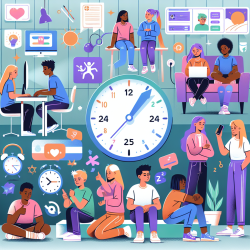Creating a positive school culture is essential for fostering an environment where students and staff feel valued, supported, and motivated. As mental health professionals working in schools, you play a crucial role in shaping this culture. One effective way to enhance school culture is through the integration of online therapy services. In this blog, we will explore how online therapy can contribute to a positive school culture and the benefits it brings to students, especially those in special education.
The Importance of a Positive School Culture
A positive school culture is characterized by:
- Mutual respect and inclusivity
- Strong relationships among students, staff, and families
- Emphasis on mental and emotional well-being
- High expectations for academic and personal growth
Such a culture not only improves student outcomes but also enhances the overall school experience for everyone involved. It creates a safe and nurturing environment where students can thrive academically, socially, and emotionally.
How Online Therapy Services Contribute to School Culture
Online therapy services, like those provided by TinyEYE, offer several advantages that can significantly impact school culture:
- Accessibility: Online therapy makes mental health services more accessible to students, regardless of geographical location or physical limitations. This is particularly beneficial for students in special education who may require specialized services such as speech therapy for autism.
- Consistency: With online therapy, students can receive consistent support, even if there are changes in school staffing or other disruptions. This continuity is vital for maintaining progress and fostering a sense of stability.
- Collaboration: Online platforms facilitate collaboration between therapists, teachers, and parents. This team approach ensures that everyone involved in a student's education is on the same page and working towards common goals.
- Customization: Online therapy allows for tailored interventions that meet the unique needs of each student. Therapists can use data-driven approaches to monitor progress and adjust strategies as needed.
Case Study: Impact on Special Education
Consider a student with autism who requires speech therapy. Traditional in-person sessions may be challenging due to scheduling conflicts, transportation issues, or a lack of specialized therapists in the area. Online therapy eliminates these barriers, providing the student with consistent, high-quality speech therapy tailored to their needs. This not only supports the student's communication skills but also boosts their confidence and social interactions, contributing to a more inclusive and supportive school culture.
Conclusion
Integrating online therapy services into schools can have a profound impact on school culture. By making mental health services more accessible, consistent, and collaborative, we can create an environment where all students feel supported and empowered to reach their full potential. As mental health professionals, you have the opportunity to lead this transformation and ensure that every student receives the care and support they need to succeed.










